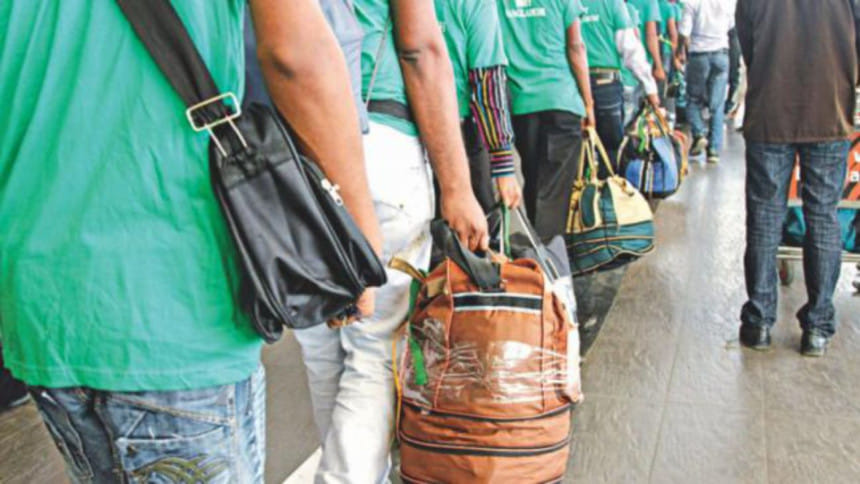Covid-19 fallout: 4,100 more migrant workers to return home from Iraq

About 9,500 migrant workers are expected to return home from Iraq, with about 5,400 of them already repatriated, following job losses in the Arab country amid the pandemic.
The rest 4,100 will fly back home in coming months, according to Bangladesh Embassy in Baghdad.
Iraq is home to over two lakh Bangladeshi migrant workers.
The economy of the Middle Eastern country, which largely depends on its oil revenue, was already facing crisis before the pandemic.
The crisis was deepened by the pandemic, since many businesses closed their operations and started to lay-off workers, according to media reports.
According to the Bangladesh mission, two large Iraqi government projects -- one refinery and one construction -- had about 15,000 Bangladeshi workers employed before the pandemic.
But the projects, which were being implemented on contractual basis under two separate foreign companies, recently started downsizing their workforce amid the pandemic.
As per the mission, the construction project has sent back about 3,800 Bangladeshi workers so far, and will repatriate another 1,700 by this month.
However, the project authorities have agreed to re-hire 80 percent of the workers, who still have their work permits, in January next year.
On the other hand, the refinery project has sent back about 1,600 workers so far.
Together, they will repatriate a total of 7,000 Bangladeshi workers by September, said the mission.
The workers will return in charter flights under the arrangement of the Bangladesh mission.
Besides, there are many Bangladeshi migrant workers who will return under special arrangements and by their own expenditure. Currently, many of these workers do not have valid documents.
On June 27, English daily Arab News citing AFP reported that more than 20,000 Bangladeshi migrant workers in the formal sector in Iraq have lost their jobs amid the pandemic.
The numbers could be even higher, given how many work informally, said the report, quoting an official of Bangladesh embassy.
The report also mentioned 95 percent of businesses in Iraq suspended work due to Covid-19, referring to an International Labour Organization (ILO) survey.
In April, in order to shed light on the impact of Covid-19 on small and medium enterprises (SMEs), International Organization for Migration conducted a survey on 456 enterprises active in construction and manufacturing, food and agriculture, services, and wholesale and retail sectors in urban Iraq.
The survey found that the SMEs have to undergo 40 percent employment reduction, and 52 percent production reduction on an average.
Contacted yesterday, Bangladesh Ambassador in Iraq Abu Maksud M Forhad said there are still demands for Bangladeshi workers in Iraq.
"Bangladeshi workers are known as 'sincere, hardworking and honest' to the local Iraqis," said the ambassador.
He said currently the embassy is in talks with the Iraq government to negotiate for a general amnesty for Bangladeshi workers so that they can further stay in the country.
A decision in this regard is expected to come within one or two months, he told this newspaper by phone.
The ambassador stressed that the authorities in Bangladesh should take steps in sending more skilled workers, saying this would benefit in generating higher remittance.

 For all latest news, follow The Daily Star's Google News channel.
For all latest news, follow The Daily Star's Google News channel. 




Comments